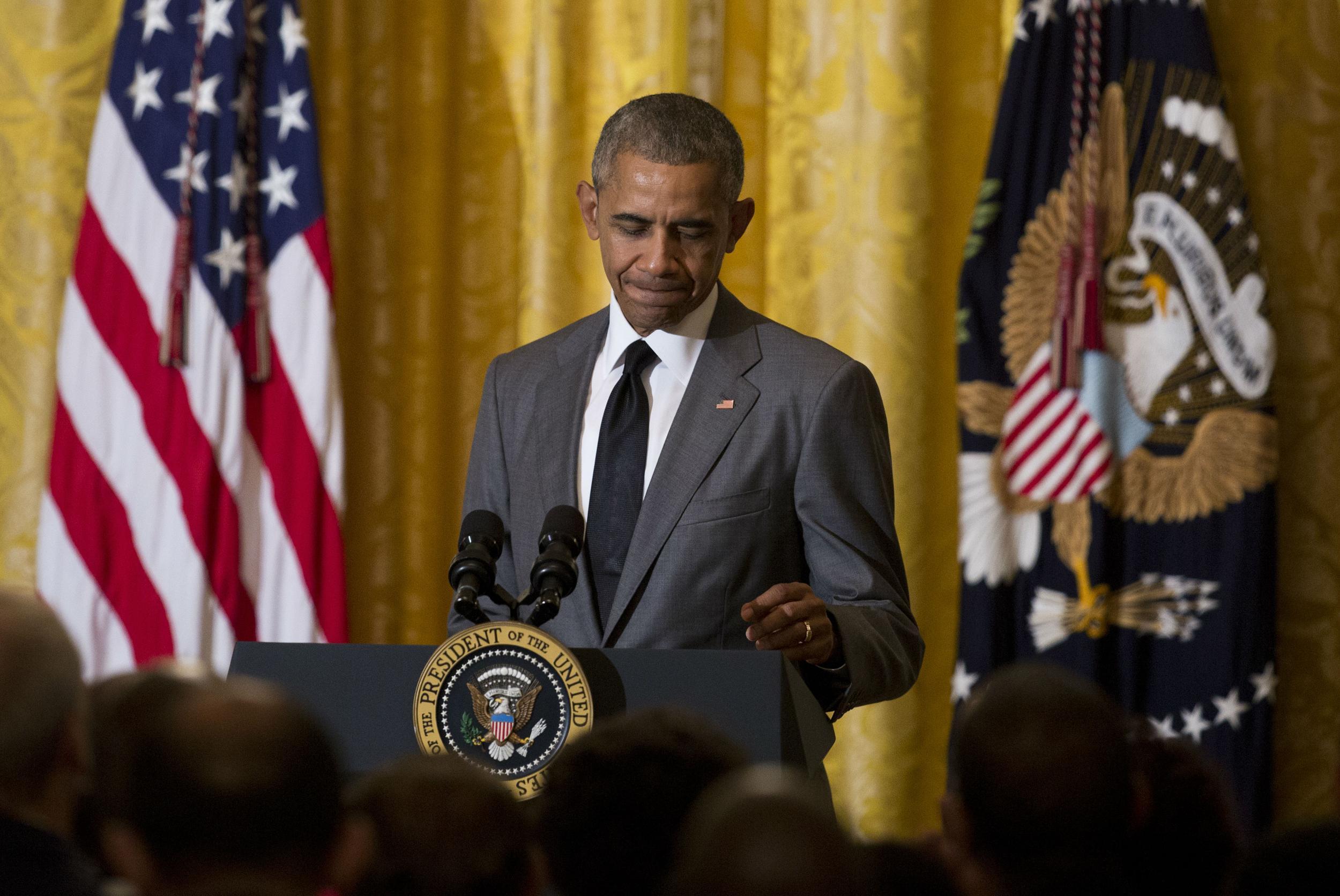Guantanamo Bay closure a step closer after mass transfer of prisoners to the UAE
State department spokesman says: 'The continued operation of the detention facility weakens our national security and emboldens violent extremists'

Fifteen prisoners at Guantanamo Bay have been sent to the United Arab Emirates in the single largest release of detainees during the Obama administration.
The transfer of 12 Yemeni nationals and three Afghans to the UAE comes amid a renewed push to whittle down the number of detainees held at the US prison in Cuba that President Barack Obama aims to close.
The Pentagon says 61 detainees now remain at Guantanamo, which was opened in January 2002 to hold foreign fighters suspected of links to the Taliban or the al-Qaida terrorist organisation. During the Bush administration, 532 prisoners were released from Guantanamo, often in large groups to Afghanistan and Saudi Arabia.
The latest batch of released prisoners had been held without charge at Guantanamo, some for over 14 years. They were cleared for release by the Periodic Review Board, comprised of representatives from six U.S. government agencies.
The UAE successfully resettled five detainees transferred there last year, according to the Pentagon.
Lee Wolosky, the State Department's special envoy for Guantanamo's closure, said the US was grateful to the United Arab Emirates for accepting the latest group of 15 men and helping pave the way for the detention center's closure.
"The continued operation of the detention facility weakens our national security by draining resources, damaging our relationships with key allies and partners, and emboldening violent extremists," Wolosky said.
In the United Arab Emirates, the state-run WAM news agency had no reports on the Guantanamo transfers on Tuesday and UAE officials declined to immediately comment on the Pentagon announcement.
Obama has been seeking to close the detention center amid opposition from Congress, which has prohibited transferring detainees to the U.S. for any reason. The administration has been working with other countries to resettle detainees who have been cleared for transfer.
Naureen Shah, Amnesty International USA's director of national security and human rights, said the transfers announced Monday are a "powerful sign that President Obama is serious about closing Guantanamo before he leaves office."
US Rep Ed Royce, a Republican from California who is chairman of the House Foreign Affairs Committee, criticised the Obama administration for recent releases, portraying the freed detainees as "hardened terrorists."
The Office of the Director of National Intelligence says 5 percent of Guantanamo prisoners released since Obama took office have re-engaged in militant activities and an additional 8 percent are suspected of doing so. That compares with 21 percent confirmed and 14 percent suspected during the Bush administration.
According to Amnesty, one of the Afghans released to the UAE alleged that he was "tortured and subjected to other cruel treatment" while in US military custody. The man, identified only as Obaidullah, was captured by US special forces in July 2002 and allegedly admitted to acquiring and planting anti-tank mines to target U.S. and other coalition forces in eastern Afghanistan.
In clearing him for transfer, the review board said he hasn't expressed any anti-U.S. sentiment or intent to re-engage in militant activities. However, a Pentagon profile from last year also said he provided little information and they had little "insight into his current mindset."
One of the Yemeni men sent to the UAE was identified as Zahir Umar Hamis bin Hamdun, who the Pentagon alleged traveled to Afghanistan in 1999 and after training at a camp acted as a weapons and explosives trainer.
A Pentagon profile from September 2015 said he expressed dislike of the U.S., which they identified as "an emotion that probably is motivated more by frustration over his continuing detention than by a commitment to global jihad."
Returning Guantanamo prisoners back to Yemen would be difficult amid a two-year civil war raging in the Arab world's most impoverished country. The conflict there pits an internationally recognized government, backed by a coalition led by Saudi Arabia, a Sunni powerhouse, against Shiite rebels known as Houthis and their allies.
There was also no immediate reaction in Afghanistan on the transfer of the three Afghans from Guantanamo to the UAE.
AP
Subscribe to Independent Premium to bookmark this article
Want to bookmark your favourite articles and stories to read or reference later? Start your Independent Premium subscription today.

Join our commenting forum
Join thought-provoking conversations, follow other Independent readers and see their replies